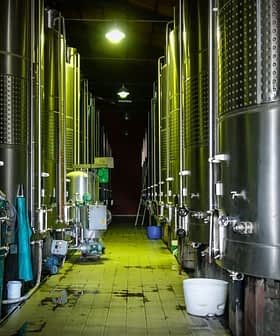A Plan to Decarbonize Europe
After lengthy negotiations, the European Union is one step closer to the goal of becoming carbon neutral within 2050.
 Chemical factory in Ludwigshafen Germany
Chemical factory in Ludwigshafen Germany The Fitfor55 package, approved by the European Union, aims to reduce emissions by 55 percent by 2030 and achieve climate neutrality by 2050, with a focus on the LULUCF sector. The agreement also includes measures such as the E.U. Emission Trading System, Social Climate Fund, and regulations for emissions reductions in various sectors, which will now be discussed and voted on by the European Parliament.
Heralded as a new beginning in the pursuit to drastically reduce greenhouse gas emissions, the Fitfor55 package has been approved by the governments of the European Union after lengthy and complex negotiations.
Initially announced last year, the new package aims to reduce emissions within the 27-members’ block by 55 percent by 2030.
The world is not waiting. The climate crisis does not wait. The geopolitical challenges do not wait, and Europe has to show unity, determination, global leadership.
The agreement’s more ambitious goal is to reduce emission volumes over time further and achieve climate neutrality by 2050, when the E.U. is sequestering as many carbon emissions as it produced.
One of the most relevant aspects of the agreement is the so-called LULUCF sector regulations, which include land use, land-use change and forestry, comprising soils, trees, plants, biomass and timber.
See Also:Mediterranean Agricultural Biodiversity at Risk, Report FindsThe sector will be asked to achieve 310 megatons of net carbon dioxide removals, which is 15 percent more removals than is currently taking place.
“Each member state will contribute a fair share because the ‑310 Mt target will be distributed among them based on the recent level of removals or emissions and the potential to increase removals further,” the commission wrote in a white paper.
By 2023, the commission will also present a proposal to limit non-CO2 emissions produced by agricultural activities.
“The proposed regulation will lead to climate-neutral food and biomass production, improve the resilience of forests to climate change, facilitate the restoration of degraded ecosystems and promote the bio-economy through the use of durable bio-products, in full respect of ecological principles fostering biodiversity,” the commission stated.
One of the critical decisions of the new agreement is the central role attributed by the member states to the E.U. Emission Trading System (ETS), a carbon market set up in 2005 and considered by the European Commission to be a cornerstone in the struggle against climate change. It aims to compensate for carbon emissions from energy-intensive industries and the power generation sector.
The core of ETS is a cap and trade principle, where the cap is the maximum amount of emissions that an installation covered by ETS can produce.
Those installations can trade the ETS allowances they might have in excess among themselves. But, at the end of each year, they risk heavy fines should their allowances not be sufficient to cover their emissions.
The new agreement provides a one-time reduction of allowances and further reduces them by 4.2 percent every year.
Approximately 40 percent of E.U. power and energy-intensive plants currently operate within ETS. By 2030, E.U. governments believe that the sectors covered by ETS will have reduced their emissions by 61 percent.
Sectors not covered by ETS, such as agriculture, domestic maritime transport, waste and small industries, will be required to slash emissions by 40 percent compared to the 2005 measurements. The non-ETS sectors are credited for 60 percent of the overall emissions within the union.
One of the most controversial areas of the package is the Social Climate Fund, a €59 billion E.U. fund designed to shield vulnerable households from the impact of carbon costs as prices for buildings, transport, and more will be affected by the new policies.
“The fund will provide financial support to member states to finance the measures and investments identified in their plans, to increase the energy efficiency of buildings, the renovation of buildings, the decarbonization of heating and air-conditioning in buildings and the uptake of zero-emission and low-emission mobility and transport, including measures providing direct income support in a temporary and limited manner,” the E.U. Council wrote.
Other aspects of the agreement require cars manufactured after 2035 to produce no CO2 emissions, while other regulations will push for emissions reduction in aviation and maritime shipping sectors.
The agreement is now on the Agenda of the European Parliament, which will discuss the decisions of the E.U. governments, propose eventual modifications to the package and then vote on the whole project.
“We now have a common position on these major issues from the Council, from the European Parliament, which will give us the possibility to start the negotiations with a very short deadline. And we need that,” Frans Timmermans, European Commission vice-president in charge of the European Green Deal, told EuroNews.
“The world is not waiting,” he concluded. “The climate crisis does not wait. The geopolitical challenges do not wait, and Europe has to show unity, determination, global leadership.”
Share this article









